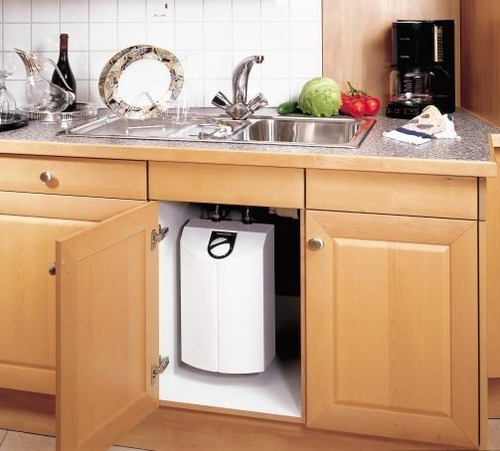
Refusal of resistive heating elements
ISI Technology has already demonstrated its instantaneous water heater with a new technology, and in 2015 promises to provide a cumulative. In these electric boilers, resistive heaters were abandoned, and they directly affect the molecular structure of water, using the know-how developed by the company. The efficiency of such a water heater is stated at 99 percent. According to the company, this approach will allow:
- reduce the number of breakdowns;
- simplify the implementation of additional functions;
- reduce energy consumption by 40 percent;
- make the design of the water heater more elegant.
The new boiler will be equipped with a modern control system with the ability to control work via wireless networks using a smartphone or tablet.
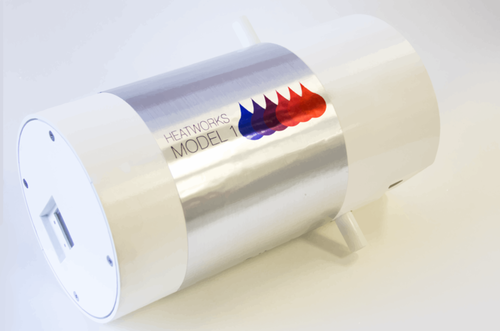
Photo: facepla.net
Electronic Chip Water Softener Systems
A big problem for modern boilers is hard water, which forms scale on the heating elements and surfaces of the tank. Water treatment systems are practically not used to combat it, since conventional cationic and even progressive membranes are quite expensive and take up a lot of space, and also reduce the efficiency of the water heater. The newly formed startup Okeanos Technologies, together with the University of Texas Technology, has proposed a new approach. He promises in 2015 to create a system the size of a two-liter bottle, which can not only remove calcium and magnesium salts, which cause scale, but also desalinate seawater. At the heart of this system is a chip, created according to the technology of semiconductor devices production. When voltage is applied, a double channel is created in it, in one of the branches of which an ion-depleted area is formed, where the salts rush. Although the system is primarily intended for desalination, many manufacturers of heating equipment have expressed interest in using it in their equipment, boilers and water heaters.
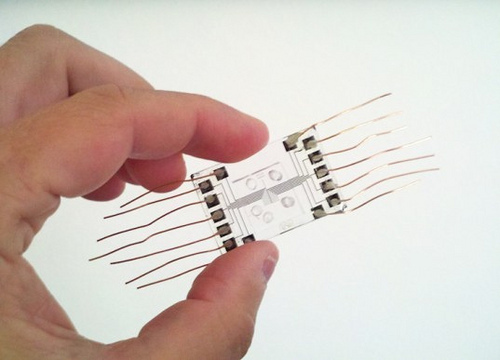
Photo: www.tevado.ru
Heat recovery
This system is already offered by Russian companies to their customers. Its essence lies in the fact that the excess heat generated in the refrigeration equipment is diverted to the storage water heater and is used to supply hot water. At the moment, such equipment is more in demand by manufacturers or trade organizations. But immediately from several companies appeared statements that this year they will offer similar systems for domestic needs, integrated primarily with air conditioning systems. Thus, the excess liquid used to cool the room will be used for heating. The volume of such storage water heaters will be small and they will be used mainly to obtain a small amount of hot water.
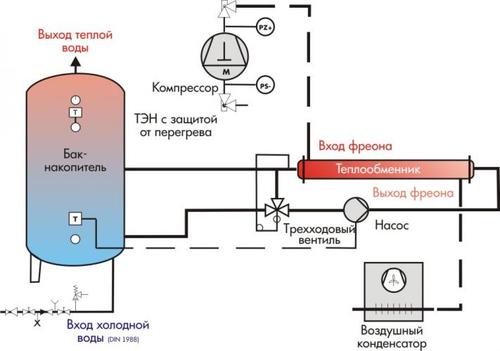
Photo: astron-m-arhangelsk.ru
Biological method of descaling
Until now, either a mechanical method or chemical reagents have been used to clean the surfaces of storage water tanks. In November last year, the Krasnodar company NanoServ announced a new method - the use of microorganisms. After the genetic modification of lactic acid bacteria, they "agreed" to eat scale. Unlike other methods of removing plaque, this approach allows us not to worry about the condition of the seals and polymer components of the boiler, which were easily damaged or dissolved by other cleaning methods. Now it will be possible to restore the state of the storage water heater without the involvement of specialists.The company plans in 2015 to enter the Russian market with this technology, and later on abroad.
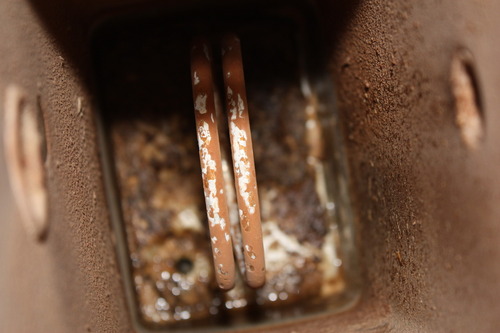
Photo: ot-nakipi.ru
Integration of storage boilers into the smart home system
Managing water heaters using mobile devices has been in use for several years. But usually this function is implemented individually for each individual device. Bosch approached this issue more thoroughly; it is developing a Home Connect system that will link all household appliances from an accumulative boiler or washing machine to a blender into one network. This will greatly simplify the work and bring the concept of “smart home” closer. And this is not just a forecast, the system is already working. In November 2014, applications for mobile devices on iOS were released, and in the spring of 2015, the program is also expected to appear for the more common Android platform. You no longer have to look for separate programs for a boiler or a refrigerator in the menu of a smartphone or tablet, you can immediately after programming the coffee maker to make a cup of coffee by 7 o'clock, easily switch to a storage water heater and assign it to prepare hot water for a shower 15 minutes earlier.
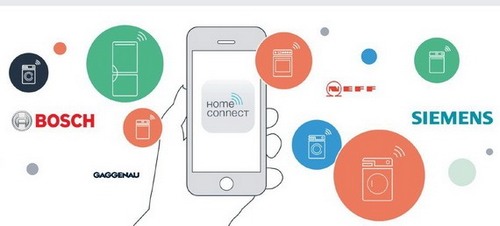
Photo: irvispress.ru
